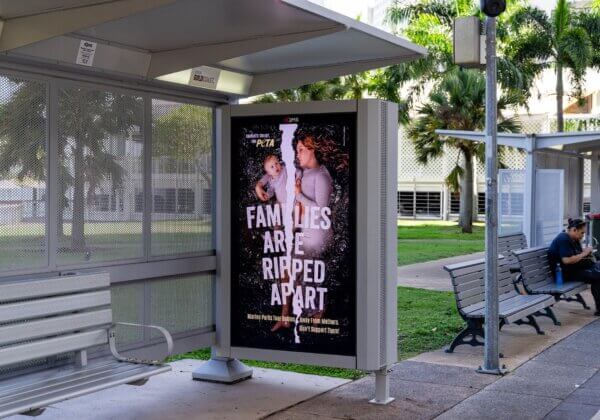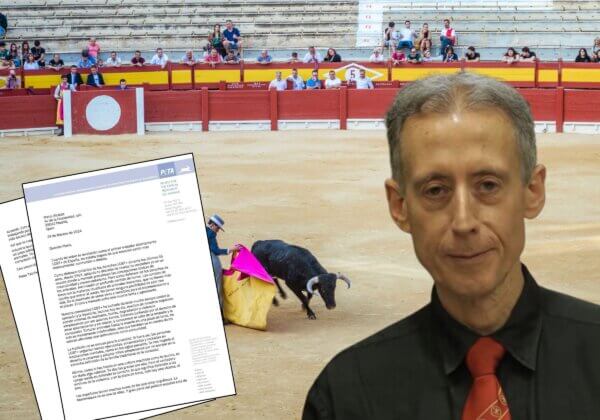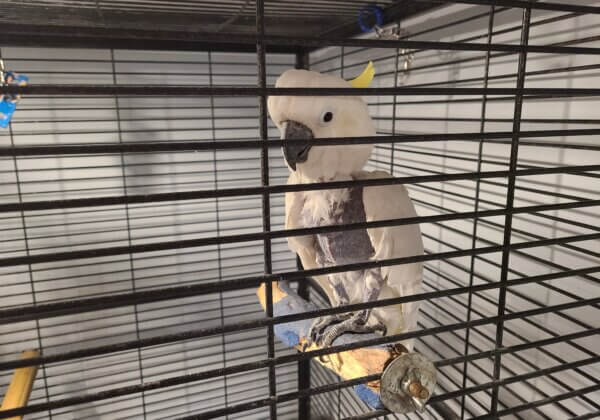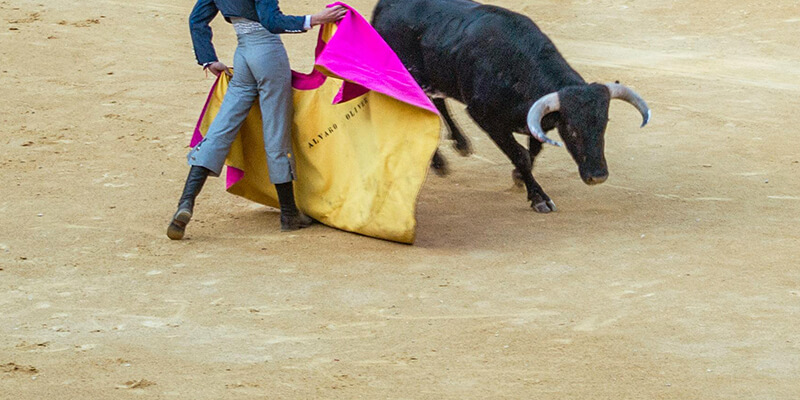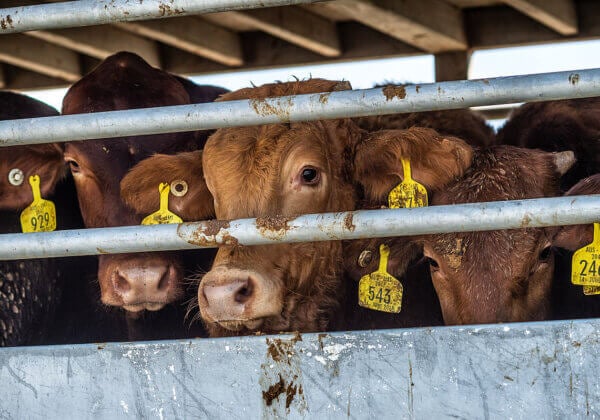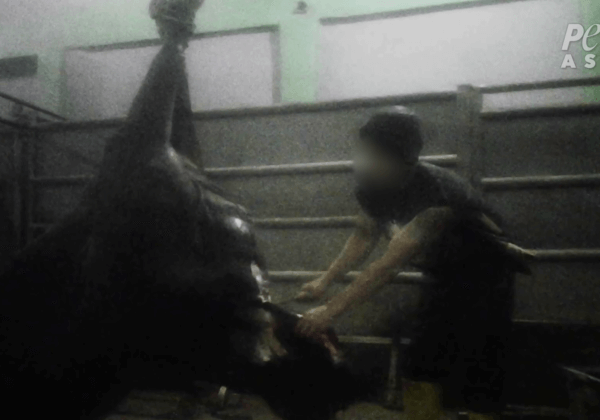Melbourne Cup Protesters Stage ‘Squid Game’ Scene
If you’ve watched the hit series Squid Game on Netflix, you’ve probably already made the connection between the deadly games on the show and the real-life horrors of horse racing.
On the eve of the Melbourne Cup, PETA and the Coalition for the Protection of Racehorses staged a scene from Squid Game outside the gates of Flemington to demonstrate that gambling with the lives of others is wrong.
 Coalition for the Protection of Racehorses
Coalition for the Protection of Racehorses
An activist wearing a green tracksuit and a horse mask lay on the ground spattered with “blood” while others in red tracksuits held signs that read, “We Gamble on Your Lives” and “You Are the Horses”.
You Bet, They Die
The comparison between horses and Squid Game players could not be made any clearer by the show’s writers. When viewers meet Seong Gi-hun in the first episode, he is betting on horse races. By the final scene, he realises he has become a horse for a group of sadistic, bored gamblers.
Much like the way participants in Squid Game fall to their deaths or are shot on the spot for losing a game, horses used in the racing industry often collapse and die or are taken off to the side and killed right on the track.
The only difference is that the players on the Netflix show initially get to choose whether they want to play or not.
Over the past nine years, eight horses have died at Melbourne Cup day alone. Last year’s victim was Anthony Van Dyck, who was euthanised after fracturing his fetlock during the race. In 2018, 5-year-old Irish Thoroughbred The Cliffsofmoher fell badly, breaking his shoulder. He was euthanised shortly thereafter. Other horses who died include Rose of Peace in 2012, Verema in 2013, Admire Rakti and Araldo in 2014, Red Cadeaux in 2015, and Regal Monarch in 2017 after falling in race four.
In the past year, 149 horses have died on Australian race tracks – that’s one every two and a half days – according to numbers collated by the Coalition for the Protection of Racehorses. Their deaths were traumatic and frightening, a stomach-churning mess of tangled legs, fractured bones, and broken spines.
These recorded track deaths are only the tip of the iceberg. Most states don’t even report deaths that occur during training or in trials, and stewards aren’t required to list the deaths of horses caused by on-track injuries if the animal is removed from the track on race day and killed later.
Horses used for racing have been specifically bred for speed at the expense of their health. They weigh more than 500 kilograms, are supported by ankles only the size of a human’s, and are whipped and forced to run around tracks at speeds of more than 50 kilometres an hour while carrying a jockey on their back. It’s a recipe for disaster.
Many horses are over-medicated to keep them racing when they should be recuperating from injuries, making them vulnerable to breakdown.


What Happens When Horses ‘Retire’
Even those who survive aren’t guaranteed peace. Regardless of pedigree or past earnings, many horses bred for racing are discarded once they’re no longer useful.
A 2020 investigation by Farm Transparency Project followed the fate of ex-racing Thoroughbred and Standardbred horses to two Sydney knackeries, where hidden cameras captured their slaughter and sale as food for companion animals. Many of the horses seen there were officially listed as “retired” on the Racing Australia website. And in 2019, ABC’s 7.30 programme revealed that around 300 horses used for racing went through a single abattoir in Queensland in just 22 days.
Horses bred by the Australian racing industry are also sometimes sold to the racing industry in South Korea, where they’re slaughtered for meat when they’re no longer considered useful. A PETA exposé of that country’s largest horse abattoir shows castoffs from the racing industry being beaten repeatedly in the face as they’re forced into the abattoir and killed for their flesh.
Help Horses
Anyone with an ounce of humanity can see that whipping sensitive animals to run faster so that some folks can win some money is completely unethical. The most important thing any of us can do to help horses is stay away from racetracks and never place a bet on horses.
PETA is working to stop this gross industry on several fronts. Recently, we filed criminal charges in the Magistrates Court of Tasmania alleging that the whipping of horses at Tasmanian racecourses violates the state’s animal welfare laws.
We’re also informing companies that sponsor horse racing to make sure they’re aware of the cruelty they’re paying for – and we’re seeing some progress. In October, insurance company AAMI confirmed that it has ended its sponsorship of the Melbourne Cup!
Will you join us in asking Lexus, Seppelt, and Kennedy Luxury Group to follow AAMI’s lead?

